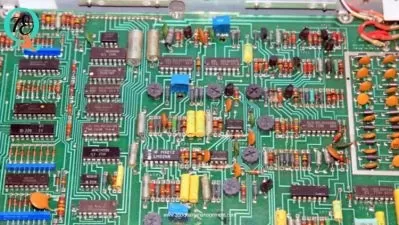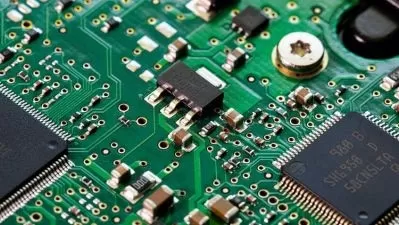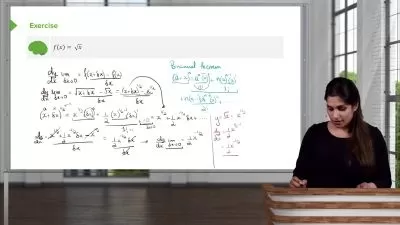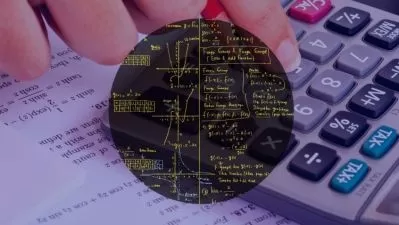Integrated Circuit: Learn Differential Amplifier on MULTISIM
Practical Buddy
2:52:59
Description
Analog (IC) Integrated Circuit:- Design & Simulate Differential Amplifiers Recommended for ECE & Biomedical Engineers
What You'll Learn?
- The basics of differential amplifiers and their applications in electronic circuits.
- Why we use 2 transistors in differential amplifiers?
- How to use Multisim software to design and simulate differential amplifier circuits.
- The difference between ideal and non-ideal differential amplifiers and how to incorporate these differences in circuit design.
- How to analyze and evaluate the performance of differential amplifiers in terms of parameters such as gain, common-mode rejection ratio (CMRR), and input/output
- Techniques for biasing differential amplifiers and ensuring that they operate in their linear region.
- How to incorporate feedback into differential amplifier circuits to improve their performance.
- Troubleshooting techniques for identifying and correcting problems in differential amplifier circuits.
- How to apply the concepts and skills learned in this course to real-world circuit design problems.
Who is this for?
More details
DescriptionThis course is designed to provide students with a comprehensive understanding of differential amplifiers and their applications in integrated circuits. The course covers the theoretical principles behind differential amplifiers, as well as practical design considerations and circuit analysis techniques using Multisim software.
In this course, students will learn about the basic building blocks of differential amplifiers, including transistor configurations, biasing techniques, and common-mode rejection. They will also explore the various types of differential amplifier circuits, such as single-ended, fully differential, and operational amplifiers. The course will cover the design and simulation of these circuits using Multisim, a powerful simulation tool widely used in the electronics industry.
Throughout the course, students will be challenged with hands-on exercises and quizzes to reinforce their understanding of the material. By the end of the course, students will have a solid understanding of differential amplifiers and their applications in integrated circuits, as well as practical skills in designing, simulating, and analyzing these circuits using Multisim software.
Course Outline:
Introduction to differential amplifiers and their applications
Basic transistor configurations and biasing techniques
Common-mode rejection and differential voltage gain
Single-ended and fully differential amplifier circuits
Operational amplifier circuits
Design and simulation of differential amplifier circuits using Multisim
Practical considerations for differential amplifier design
Hands-on exercises and quizzes to reinforce learning
Prerequisites: Students should have a basic understanding of electronic circuits, including basic circuit analysis techniques and circuit elements such as resistors, capacitors, and transistors. Familiarity with Multisim software is helpful but not required.
OR
You can enroll in my previous courses
Who this course is for:
- Electrical and Electronics Engineering students interested in circuit design, specifically integrated circuit design
- Electronics enthusiasts looking to deepen their understanding of differential amplifiers and their applications.
- Professionals working in the electronics industry who need to design or analyze differential amplifier circuits.
- Researchers and scientists in fields such as biomedical engineering or physics who use differential amplifiers in their work.
- Anyone with a basic understanding of electronic circuits who wants to learn more about designing and analyzing differential amplifiers using Multisim software.
- Students who want to start there career in Integrated Circuit Design
- Students who want to start there career in Analog Integrated Circuit Design
This course is designed to provide students with a comprehensive understanding of differential amplifiers and their applications in integrated circuits. The course covers the theoretical principles behind differential amplifiers, as well as practical design considerations and circuit analysis techniques using Multisim software.
In this course, students will learn about the basic building blocks of differential amplifiers, including transistor configurations, biasing techniques, and common-mode rejection. They will also explore the various types of differential amplifier circuits, such as single-ended, fully differential, and operational amplifiers. The course will cover the design and simulation of these circuits using Multisim, a powerful simulation tool widely used in the electronics industry.
Throughout the course, students will be challenged with hands-on exercises and quizzes to reinforce their understanding of the material. By the end of the course, students will have a solid understanding of differential amplifiers and their applications in integrated circuits, as well as practical skills in designing, simulating, and analyzing these circuits using Multisim software.
Course Outline:
Introduction to differential amplifiers and their applications
Basic transistor configurations and biasing techniques
Common-mode rejection and differential voltage gain
Single-ended and fully differential amplifier circuits
Operational amplifier circuits
Design and simulation of differential amplifier circuits using Multisim
Practical considerations for differential amplifier design
Hands-on exercises and quizzes to reinforce learning
Prerequisites: Students should have a basic understanding of electronic circuits, including basic circuit analysis techniques and circuit elements such as resistors, capacitors, and transistors. Familiarity with Multisim software is helpful but not required.
OR
You can enroll in my previous courses
Who this course is for:
- Electrical and Electronics Engineering students interested in circuit design, specifically integrated circuit design
- Electronics enthusiasts looking to deepen their understanding of differential amplifiers and their applications.
- Professionals working in the electronics industry who need to design or analyze differential amplifier circuits.
- Researchers and scientists in fields such as biomedical engineering or physics who use differential amplifiers in their work.
- Anyone with a basic understanding of electronic circuits who wants to learn more about designing and analyzing differential amplifiers using Multisim software.
- Students who want to start there career in Integrated Circuit Design
- Students who want to start there career in Analog Integrated Circuit Design
User Reviews
Rating
Practical Buddy
Instructor's Courses
Udemy
View courses Udemy- language english
- Training sessions 8
- duration 2:52:59
- Release Date 2023/04/27















